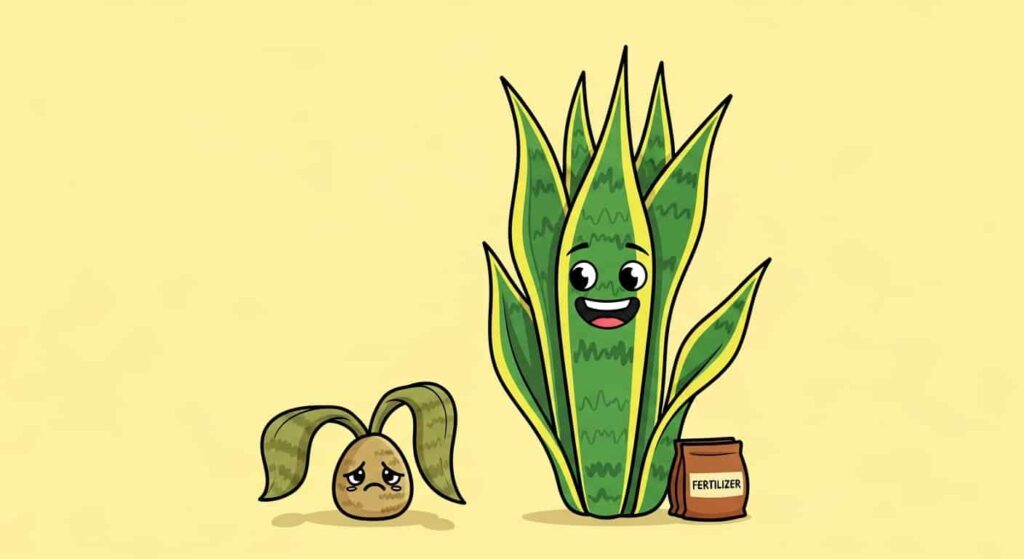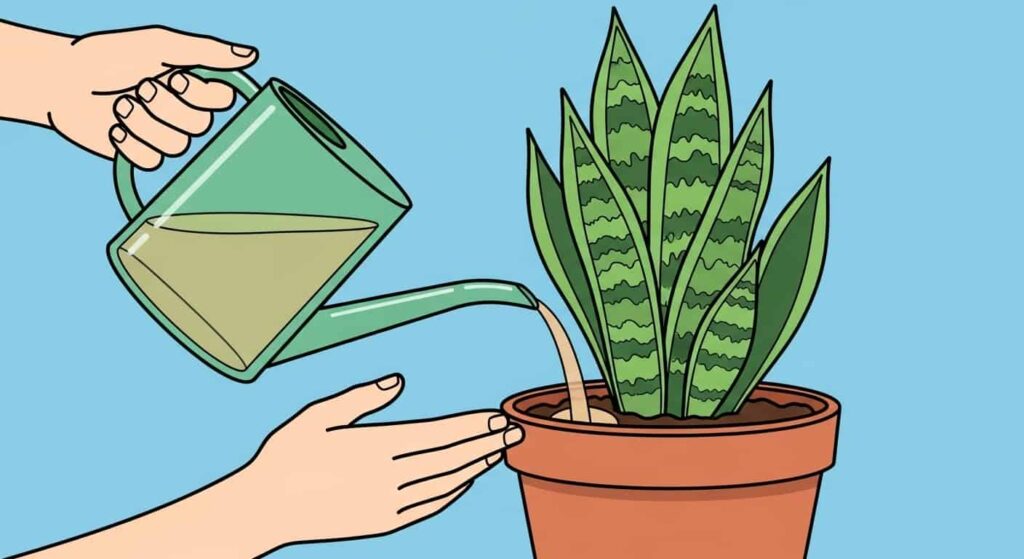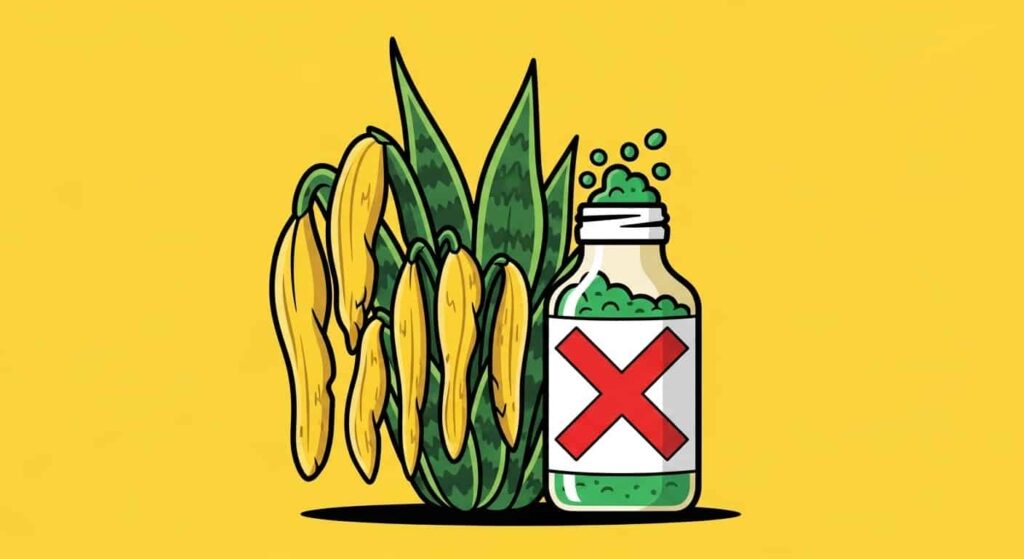TL;DR: The Quick Summary
🌵 Alternative: Cactus or succulent plant food works great too.
🌿 Best Fertilizer: Balanced liquid fertilizer (10-10-10 NPK) diluted to half-strength.
📅 Schedule: Feed once a month only during spring and summer.
🛑 Rest Period: Do not fertilize in fall or winter (dormancy).
💧 Crucial Step: Always water the soil before applying fertilizer to avoid root burn.
Do Snake Plants Actually Need Fertilizer?

Many people ask, “Do snake plants need fertilizer?” given how tough they are. The answer is yes, but they don’t need much.
Snake plants are native to rocky, nutrient-poor soils in Africa. They are efficient survivors. However, potting soil has limited nutrients that deplete over time.
Providing plant food for snake plants helps them transition from surviving to thriving. A little boost encourages new leaf growth and deepens those vibrant green colors. It also strengthens the root system against pests.
Pro Tip: If your snake plant is in low light, it grows slower and needs less fertilizer. Only feed low-light plants once every 6–8 weeks during the growing season.
When to Fertilize: The Seasonal Schedule

Timing is critical when learning how to fertilize snake plant varieties. You must follow the plant’s natural growth cycle.
Spring and Summer (Active Growth)
This is when your plant is hungry. Warmer weather and more light trigger growth. Feed your plant monthly during this window.
Fall and Winter (Dormancy)
The plant rests during these months. Metabolic activity drops significantly. If you add fertilizer now, the plant can’t use it. The minerals will build up in the soil and damage the roots.
Snake Plant Feeding Schedule
| Season | Activity Level | Action Required |
|---|---|---|
| Spring | High | Start fertilizing once a month (1/2 strength). |
| Summer | High | Continue monthly feeding. Monitor growth. |
| Fall | Low | Stop fertilizing completely. Reduce watering. |
| Winter | Dormant | Do not fertilize. Water sparingly. |
The Best Fertilizer for Snake Plants
You don’t need expensive or complex products. The best fertilizer for snake plants is usually a simple, all-purpose liquid houseplant food. Look for a balanced NPK ratio, such as 10-10-10 or 20-20-20.
Because snake plants are slow growers, full-strength doses are too harsh. Dilute any general fertilizer to 50% strength.
Alternatively, you can use fertilizer specifically formulated for cacti and succulents. These are generally lower in nitrogen and safer for snake plants.
Step-by-Step: How to Apply Fertilizer

Follow these steps to prevent root burn and ensure healthy absorption.
- Water First: Never feed a dry plant. Water your snake plant as usual and wait about an hour.
- Dilute the Mix: Prepare your fertilizer solution. If the bottle says 1 teaspoon per gallon, use ½ teaspoon.
- Pour Carefully: Pour the solution over the soil, avoiding the leaves to prevent spotting.
- Drain: Ensure excess water drains out of the pot. Never let the plant sit in fertilizer water.
Quick Tip: Organic options like worm castings or compost tea are excellent, gentle alternatives that rarely burn roots. You can top-dress the soil with worm castings once in the spring for a slow-release effect.
Signs You Might Be Over-Fertilizing

Snake plants are far more likely to die from too much care than too little. Over-fertilization causes a buildup of mineral salts that draws water out of the roots.
Watch out for these warning signs:
- Brown or crispy leaf tips: This is the most common sign of fertilizer burn.
- Yellowing lower leaves: Often indicates root stress from salt buildup.
- White crust on soil: A visible layer of minerals sitting on the topsoil.
- Wilting: The plant looks thirsty even when soil is moist because roots are damaged.
- Stunted growth: Too much nitrogen can actually inhibit healthy development.
If you see these issues, stop feeding immediately. Flush the soil by running plain water through the pot for several minutes to wash away excess salts.
Frequently Asked Questions
What is the best fertilizer for snake plants?
Use a balanced liquid fertilizer (10-10-10) at half strength or a cactus/succulent feed.
Can I use coffee grounds to fertilize my snake plant?
It’s not recommended; coffee grounds can be too acidic and cause problems.
Should I fertilize after repotting?
No, wait about 6 weeks after repotting before you fertilize.
Is Miracle-Gro good for snake plants?
Yes, if you dilute it to half strength or use the succulent version.

